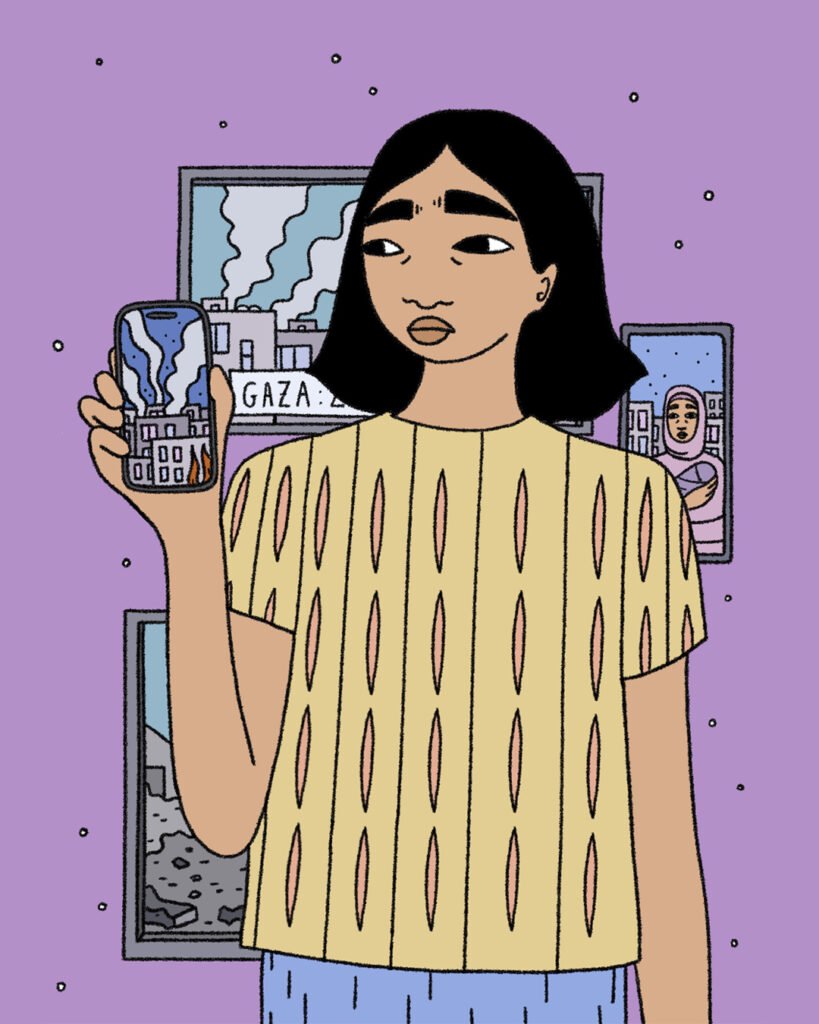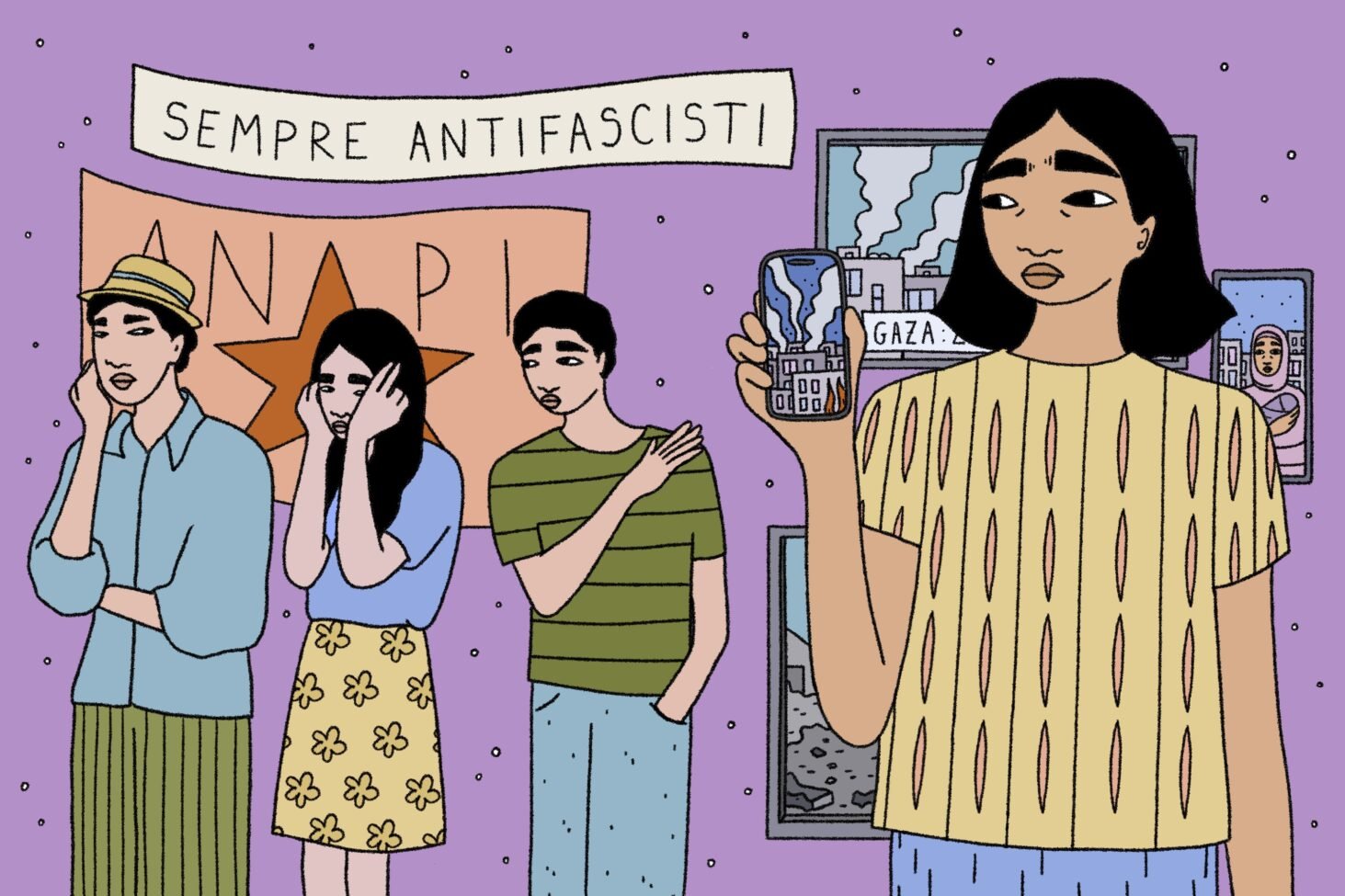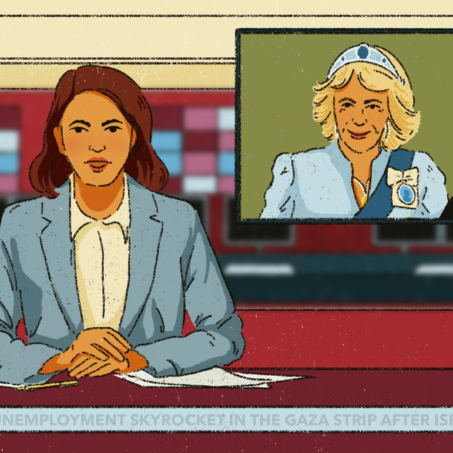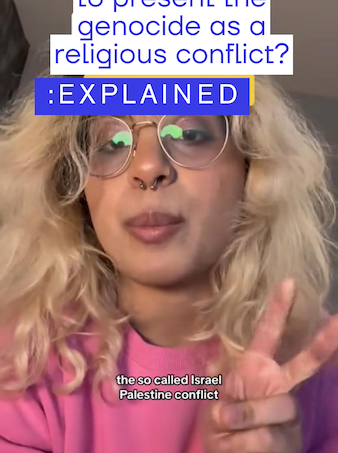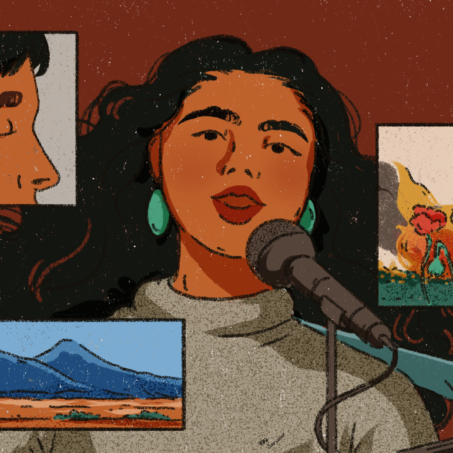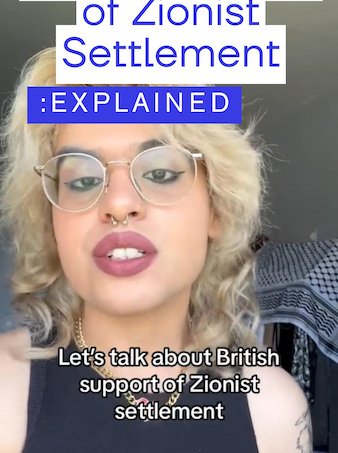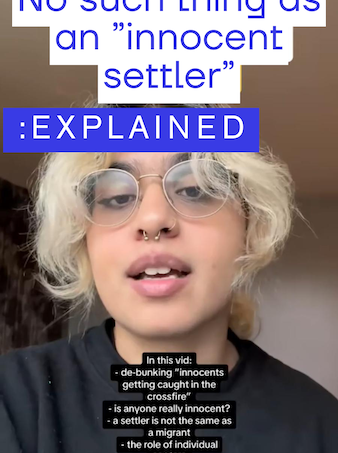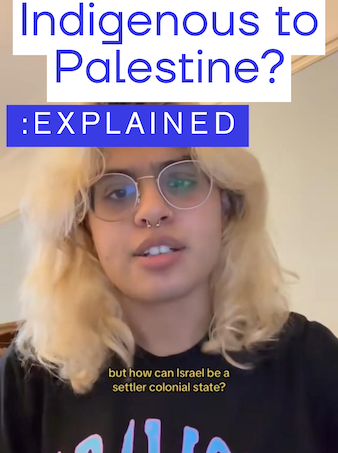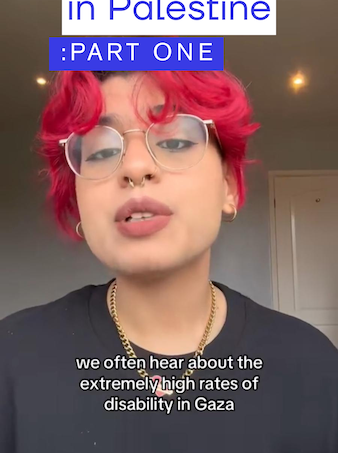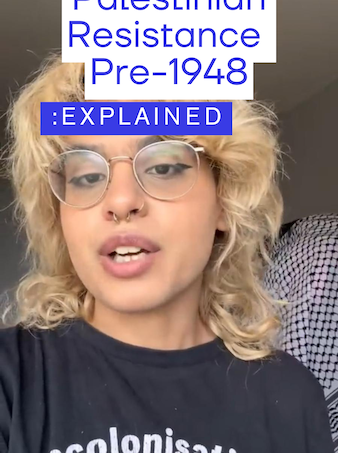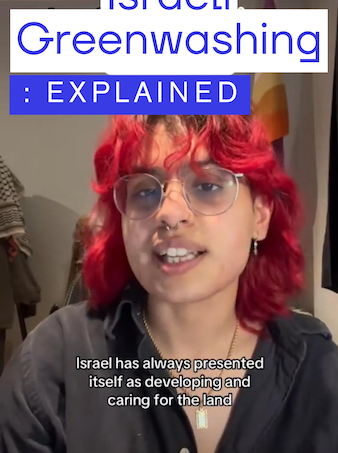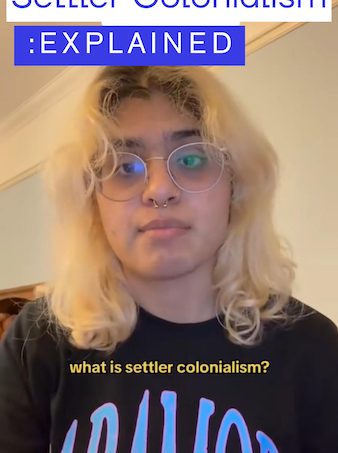Every year, on 25th April, Italy commemorates Liberation Day, marking the liberation from Nazi occupation and the fall of fascist rule, and honoring the bravery and sacrifices of resistance fighters who contributed to the country’s freedom in 1945.
This year, I attended an event organised by the National Association of Italian Partisans (ANPI) in Berlin. ANPI, a historically significant organisation in Italy, has been instrumental in preserving and celebrating the antifascist legacy of the country. As a Palestinian woman raised between Italy and Palestine, Italian Liberation Day has always carried deep emotional resonance for me, symbolising universal struggles for liberation, democracy, and freedom from external occupation.
Initially, I was hesitant about attending ANPI events due to the problematic stances of the national leadership regarding Palestine, both before and particularly after 7th October. Nevertheless, I decided to attend because, in that case, the Berlin branch’s, like that of a few local chapters in Italy, promotion of the event included a narrative that didn’t condone Israel’s actions or equate the Israeli occupation with Palestinian resistance.
The presence of keffiyehs, speeches against the genocide in Gaza, and the distribution of Palestine Cola – a brand of cola whose proceeds directly support charitable projects in Palestine, in opposition to the ubiquitous brand which is implicated in Israeli war crimes – convinced me to give them the benefit of the doubt. Yet, during the event I encountered a deeply demoralising revelation that left me profoundly disappointed.
Solidarity with conditions: the politics of acceptable voices
From the River to the Streets, a photographers’ collective dedicated to documenting Germany’s severe repression of the pro-Palestinian movement in Berlin, was unexpectedly removed from the official Liberation Day programme due to political pressure. Their photos are critical documents of recent violence used against unarmed protestors by German police. The removal of this exhibit underlined a troubling dynamic: even within spaces expressly committed to resistance and liberation, Palestinian voices remain vulnerable to silencing and censorship.
“From an organisation rooted in the legacy of the Partisan Resistance, we expected more: a steadfast defence of freedom of expression, a refusal to give in to intimidation and censorship, and a commitment to remembering that the Resistance was – and must remain – an uncompromising struggle against all forms of injustice, not a selective or conditional one,” From the River to the Streets wrote in a statement shared on its official Instagram account.
At the event, my friend and I confronted the organisers about what they had done and their visible discomfort and awkward attempts at justification spoke louder than any words. Their evident embarrassment implicitly acknowledged the profound moral betrayal they had committed. As a Palestinian woman attending in genuine faith in the symbolic promise of the day, their failure struck me deeply.
Nadia* is one of the 12 photographers in the collective. We spoke recently. I asked her about the collective, and discussed the event, how things unfolded from their perspective and what the situation is like for them in Germany.
She told me it was ANPI itself that invited them to participate in Italy’s Liberation Day celebration. But after political pressure from Zionist lobby groups, they quickly gave in.
They could have chosen to relocate and postpone the event – to stand firm and defend the very values for which the Italian partisans, whose memory they claim to preserve, gave their lives. Instead, they chose to retreat.
“In their statement, they even referred to From the River to the Street as merely a ‘‘collective of photographers” – just to create distance,” Nadia told me.
I believe that phrasing was deliberate: a way to draw a line between the “acceptable” pro-Palestinian voices and those considered too defiant. A line that separates those allowed to remain within institutional spaces from those who will continue to be excluded.
This division between the “good” and the “bad” pro-Palestinian voices serves to neutralise activism at its core. By separating the moderate – deemed respectable, presentable, and institutionally acceptable – from those labeled too radical or “uncomfortable,” an ideological boundary is drawn: only certain forms of solidarity are permitted. It’s a mechanism of depoliticisation that strips the most urgent demands of their force, isolates those who challenge deeper structures of power, and ensures that critique remains within tolerable limits.
And that is precisely the point we have raised time and again, especially since October 2023: we cannot settle for a few words of solidarity or condemnation of Israel if, in practice, there is still a willingness to bow to intimidation, to sanitise the narrative of occupation, and to seek institutional acceptance at the cost of truth and justice.
Germany and Italy as Israel’s outposts
Germany’s unwavering alignment with Israel has manifested in a systematic suppression of pro-Palestinian activism within its borders. This repression is evident in the frequent bans on pro-Palestine demonstrations prohibited by authorities, citing “antisemitism” or concerns over public order. In a particularly alarming development, Germany has begun deporting pro-Palestine activists for their participation in demonstrations.
Recently, a notable instance of this suppression involved Francesca Albanese, the UN Special Rapporteur on Palestine. Her scheduled event at the Free University of Berlin was abruptly canceled due to political pressure, exemplifying the extent to which even respected international figures are being silenced for speaking out against Israel.
The censorship of the From the River to the Streets photography exhibit occurred in this highly repressive environment in Germany. And ANPI Berlin gave in.
But the most tragic aspect is that this event mirrored broader problems inherent in ANPI’s leadership in Italy, concerning its stance on Palestine. Despite ANPI’s self-proclaimed commitment to antifascist values, the organisation has shown considerable ambivalence and even complicity regarding the genocide of Palestinians.
At the beginning of the Israeli, US and EU genocidal war on Gaza, ANPI released several public statements characterised by careful diplomatic balancing, condemning Palestinian resistance groups first and foremost, before cautiously criticising Israel’s massacres and atrocities.
Last year, ANPI even went as far as actively rejecting comparisons drawn between the Palestinian genocide and the Jewish Holocaust – an argument perpetuated by powerful pro-Israel organisations operating within Italy.

Join our mailing list
Sign up for shado's picks of the week! Dropping in your inbox every Friday, we share news from inside shado + out, plus job listings, event recommendations and actions ✊
Sign up for shado's picks of the week! Dropping in your inbox every Friday, we share news from inside shado + out, plus job listings, event recommendations and actions ✊
In a 2024 interview with Italian online news magazine TPI, Francesca Albanese described how Italian media and political discourse are heavily influenced by the European pro-Israel lobbies, but she also highlighted the role of Italy’s Jewish communities, describing them as closed and “reactionary” compared to those in other Western countries.
In fact, official institutions of the Jewish communities in Italy use aggressive and intimidating tactics toward those who criticise Israel, and the Italian State does nothing about it. For example, in 2023, Riccardo Pacifici, the former president of the Jewish Community of Rome, publicly threatened two university professors who had expressed criticism of the Israeli government, saying, “We will come for you.”
In addition, two well-known activists, Chef Rubio and Karem Rohana, have been followed and brutally beaten up by a group of these very groups.
Words against Netanyahu, weapons to Israel
But the political sphere is not the only one silent about all this.
One particularly alarming episode occurred in Rome during the annual 25th April Liberation Day march last year. Members of the “Brigata Ebraica“, an Italian pro-Israel organisation, assaulted people who were marching with Palestinian flags and keffiyehs, and also screamed: “they have to rape you” to women. And ANPI never condemned this.
In Italy, politicians across the political spectrum – from the far right to the so-called progressive left – always adopt cautious, sanitised language when they criticise Israel.
Until recently, even progressive parties echoed the official line that “Israel has the right to defend itself” and largely stood on its side. Now, their tone has shifted: they now openly condemn Netanyahu’s government, call for an end to arms sales, and support the recognition of a Palestinian state. Yet their stance remains limited and contradictory, because it’s paired with condemnations of Palestinian resistance and repeated claims that Hamas must be “replaced” – a framing that erases the Palestinians’ right to self-determination and places conditions on their liberation.
ANPI has mirrored this evolution. In the first months of the genocide, its statements followed exactly the same pattern: echoing Israeli propaganda, and only later shifting to calls for an embargo on arms sales to Israel. Yet, like the political parties, it continues to condemn the Palestinian Resistance, citing figures and narratives spread by Israeli propaganda, and while avoiding any recognition of the Palestinian right to resist.
With Giorgia Meloni’s right-wing government, Italy remains the third largest arms supplier to Israel worldwide, after the United States and Germany – a material alignment that speaks louder than any rhetorical shift.
Through this political balancing act despite the proportion of the catastrophe, their aim is to avoid backlash from influential lobbies and the loss of political support from pro-Israel organisations.
ANPI, an organisation rooted in anti-fascist resistance that operates outside the political institutions, follows this pattern.
From anger to action: living the pain, shaping the response
Since the ceasefire in Gaza ended in March 2025, a new phase has begun for me as a Palestinian in the diaspora. I’m no longer consumed by the same burning anger I once felt. Instead, a quiet, aching melancholy has taken its place. Yet this emotional shift has made me more focused, more productive – perhaps even more helpful to the cause itself. Or at least, I hope so.
My work and activism, once driven by vocal anger and passionate efforts to inform and persuade others, has evolved into a quieter, more enduring form of resistance. Having processed the initial shock and disillusionment, I now direct my energy toward concrete actions – organising fundraising initiatives for families in Gaza and rigorously documenting all this. This act of documentation is more than journalism or political activism; it is a vital form of resistance against the elimination of our people and our voices.
Interestingly, this reflective, calm resistance unsettles people around me more than anger ever did. It naturally exposes their complicity, revealing their positions and actions as convenient choices, not as lack of knowledge. Today, my resistance manifests through the preservation of memory, the insistence on truth, and the honoring of the Palestinian Resistance.
I want to focus now on concretely helping people and on ensuring that everything we’re going through is recorded and shared in the media, so that there remains a trace of this moment – one that can serve as evidence in our path for justice, and so that the world will never forget what it has done to us.
*name changed for security purposes
What can you do?
- Join the BDS movement! | BDS Movement
- Listen to The Electronic Intifada Podcast – Podcast – Apple Podcast
- Read The Hundred Years’ War on Palestine: A History of Settler Colonialism and Resistance, 1917–2017 by Rashid Khalid
- Read Lobbying for Zionism on Both Sides of the Atlantic by Ilan Pappe
- Read more shado articles on Palestine
